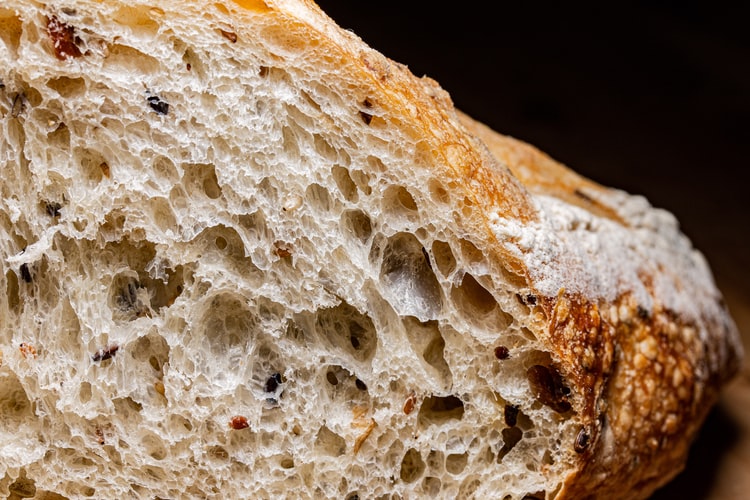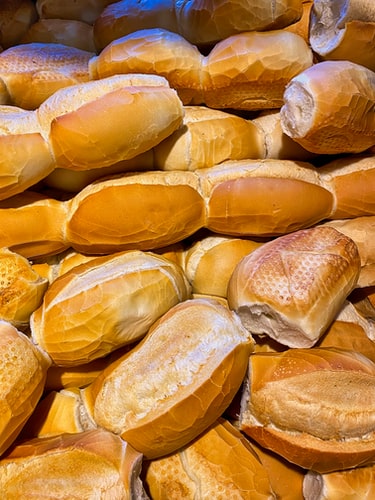When you begin a gluten-free diet, there are effects which you may experience, which include weight changes, improved energy levels, and a boost in your nutritional status. In a majority of cases, these side effects are positive. However, a gluten-free diet may also have negative effects. You may be asking: can gluten free bread cause gas? You may find yourself experiencing digestive issues such as constipation since many gluten-free foods such as processed snacks only contain small amounts of fiber. It increases your vulnerability to gluten cross-contamination. Are you wondering what to expect when you undergo a gluten-free diet? The following article provides you with information.
Top 6 Side effects of a gluten-free diet– can gluten free bread cause gas?

Continued gluten ingestion
Consuming food with gluten is the cause of ongoing symptoms in many consumers embarking on a gluten-free diet. Eating gluten may be intentional for those who think that a little bit won’t hurt since the diet can be a tough challenge at the beginning. Unintentionally consuming gluten may happen for various reasons, such as the cross-contamination between toasters and other cookware. These may happen because other family members eat gluten, and members who are following a gluten-free diet may not be familiar with how to avoid contamination. In some cases, there are hidden gluten in products. Contamination may also have been when eating out or misunderstanding the labels on food packages.
There are other reasons for ingesting gluten accidentally, and it often requires detective work. It is best accomplished with the aid of a dietitian or healthcare professional who has training in gluten-free diets if you cannot resolve the issue on your own.
Your Weight May Change
A study back in 2018 has discovered that a diet with zero gluten can result in increased weight since many zero gluten foods tend to have tons of vegetable fat.
However, not all people suffering from celiac disease who follow zero gluten are underweight before their diagnosis. A study back in 2010 examines the effects of a gluten-free diet on celiac sufferers who are within normal weight. The researchers discovered that a gluten-free diet helps balance body weight to normal levels in either underweight or overweight individuals.
Thus, your weights may normalize as an effect of a gluten-free diet. A majority of people also have this mistaken belief that a gluten-free diet will instantly lead to weight loss. If you consume too much gluten-free junk food, which tends to be higher in calories and low in nutrition, you may find yourself packing on extra pounds instead of losing it.
Your Lactose Intolerance May Improve
A majority of celiac sufferers cannot digest lactose effectively. This is because the gut damage caused by celiac disease in the intestinal villi are vital in processing lactose. Once they are damaged by the reaction to gluten in the diet, it is impossible to digest lactose anymore. You may find yourself going on a dairy-free as well as a gluten-free diet.
But as your gut damage known as DVA or duodenal villous atrophy starts to heal, you may have a renewed tolerance to foods with lactose. Again, this is a side effect of a gluten-free diet. Expect your adaptation to be gradual, especially if you suffered an intense lactose intolerance. Try to test small amounts of milk products and see how you react to them.
Lactose intolerance will have the following symptoms:
- Abdominal bloating
- Diarrhea
- Gas
If you are experiencing any of these after huge servings of milk products, steer clear from it before trying again. You can also try lactose-free milk to see if your body will have a better reaction.
If you are consuming zero gluten products, make sure you are putting in calcium in your body in other ways, such as consuming a gluten-free vitamin supplement.
You May React to Trace Gluten
While you were regularly eating gluten, you may not have had reactions to ingesting gluten accidentally. But once you eliminate this from the diet, you may find that your body has increased sensitivity to even small amounts of gluten that can be found in cross-contamination in your food.
You may also find yourself having sensitive reactions to even small bites of cakes with gluten that you just couldn’t say no to. Heightened sensitivity to trace gluten in cross-contamination is a typical side effect of a gluten-free diet. The level of seriousness of the sensitivity can vary for each person.
A strong reaction to gluten food may have a quick onset and at about an hour or less, or may not appear until the next day or some later time.
Your digestive system may have the following reactions:
- Abdominal pain
- Constipation
- Diarrhea
- Gas
- Reflux
- Vomiting
Other symptoms may also be experienced as the following:
- Brain fog
- Depression
- Lethargy
- Joint pain
You may be thinking why there should be severe consequences for such a tiny amount of gluten? It should be noted that the body’s negative reactions to foods that contain gluten can be overwhelming once you have turned to a gluten-free diet. But don’t be alarmed if you get repeated symptoms, so it is recommended to check out tips for recovery when you accidentally consumed gluten.
Once you are functioning normally again, examine your diet to see where you may have ingested hidden gluten.
Remember to be on the safe side and follow a gluten-free recipe.
You May Need More Fiber in Your Diet

All gluten, which includes bread products, gives a substantial amount of fiber in many diets. But once you eliminate gluten, you are left with only a small number of whole-grain products from which to choose. Gluten-free bread does not contain a lot of fiber, so you may find yourself consuming too little fiber. This is one of the consequences of a gluten-free diet.
Fortunately, more manufacturers who are coming up with gluten-free bread are producing bread made from whole grains. However, getting sufficient amounts of fiber in a zero-gluten diet still poses a challenge. A majority of people say that they have experience slower digestion as well as constipation as a consequence.
You may be asking what you can do to remedy the problem. You can try adding additional sources of fiber to your diet of the following sources:
- Beans and legumes
- Fresh fruits and vegetables
- Nuts and seeds
- Whole-grain gluten-free bread
If you’re making your own bread, you may want to choose to grind your own flour from gluten-free grains. You may also consider taking a gluten-free fiber supplement.
Whatever you choose, don’t add huge amounts of fiber to your diet all at once since too much fiber can disrupt your digestive system and cause bloat.
If constipation problems still challenge you or you are concerned that you are not ingesting enough fiber, talk to your physician about other options.
You May Be Missing Key Nutrients
Before going on a gluten-free diet, a majority of people got their iron and B vitamins from wheat flour products that have been enriched. Because these products are now off-limits in a zero gluten diet, some people will not get enough of these vital nutrients. A majority of gluten-free baked products are not fortified with vital minerals and nutrients.
Closely examine your intake of nutrients such as thiamine, niacin, and folic acid, as well as riboflavin along with your Iron intake. Make sure you’re getting optimum daily allowances.
Make sure you are loading up on fresh fruits and vegetables which contain tons of B vitamins. Try eating gluten-free cereals, a majority of which are fortified, and consider supplements to make up for any nutritional deficiencies resulting from a zero-gluten diet.
Are you gluten-free and gassy?- can gluten free bread cause gas?

Getting gluten
The first reason to consider is gluten contamination. Often people are not exactly as gluten-free as they like to think. Doing a thorough examination of the common sources of gluten contamination is crucial. Some of the typical offenders may be your silverware, which might be full of gluten crumbs or sponges in the kitchen that spread the gluten. Also, look at shared toasters and colanders for pasta as well as wooden utensils. Search for all possible sources, even cosmetics, and medications.
Food allergies sensitivities and other intolerances
Aside from gluten, typical foods that cause bloat are dairy products, eggs, and soy. A signal that food allergies or intolerance are the cause of your gut stress is when symptoms such as headaches, rashes, and joint pain occur together with the bloat and gassiness. There are tons of testing methods that can help determine which foods may be the root of your problem. Try working with a healthcare practitioner who has sufficient knowledge in this area.
Fructose and lactose intolerance
A few enzyme deficiencies can prevent the digestion of dietary sugar. Once these foods are poorly digested, they can result in bloating and gas. One of the treatments requires avoiding the sugar, which is either lactose or fructose. When it comes to lactose intolerance, you can take supplemental lactase enzymes to help you processes and digest dairy products. However, there is no such enzyme when it comes to fructose intolerance, so you will need to eliminate high fructose foods altogether. Both conditions can be diagnosed with breath tests and an elimination diet process.
Small Intestinal Bacterial Over-growth
You may have heard about good bacteria in the intestines, but in fact, the good bacteria are hanging around in the colon. Once bacteria spread in the small intestines instead of the colon, it is considered an infection. Small intestinal bacterial overgrowth can result in substantial gas and abdominal issues. It can be examined through biopsy or breath tests. Some individuals with mild symptoms of SIBO will react well to probiotic intervention. However, severe cases are usually treated with a strong antibiotic rifaximin.
Gastroparesis
When you eat a meal, your tummy usually gets emptied within 90 to 120 minutes. A condition of Gastroparesis slows down the function of the stomach, so it will take hours for it to get emptied, causing a painful fullness that is often described as bloat.
This can result in vomiting and acid reflux, as well as GERD. This happens gut processes are disrupted. Foods with both high levels of fat and high levels of fiber, which includes raw vegetables and salads, will be harder to digest. Gastroparesis can be confirmed with gastric emptying tests that utilize a meal of eggs that are scrambled mixed with weak amounts of a radioactive substance.
The test will sometimes utilize oatmeal but be aware that oatmeal is not gluten-free. Gastroparesis can be healed successfully with digestive enzymes, but medications and a transition to a low-residue diet may also be required.
Pancreatic Insufficiency
The pancreas is a vital organ in insulin production, and it is important in digestion as well. It produces enzymes that aid in the digestion of fats and carbohydrates. Pancreatic insufficiency can result in problems with food digested and moving too fast in the digestive tract, which results in uncomfortable gas and bloat. This condition will require a test of the stool for elastase as well as an examination of fat levels in the feces. The intervention requires minimizing fat intake and taking digestive enzymes to digest the fat when you eat.
Infections
The presence of bacteria and parasitic intestinal infection may cause abdominal pain and bloat. Intervention requires getting rid of the infection and restoring the optimal population of good bacteria. Even after your digestive issues have been diagnosed and healed, you may not yet fully recover until your nutritional status is balanced. If you’re zero gluten diet is loaded with processed and ultra-refined foods, you may not be getting good nutrition. To exacerbate the problem, both of these conditions can result in nutrient malabsorption.
It is crucial to work with reliable healthcare practitioners to be knowledgeable about eating nutritiously and how to take appropriate high-quality supplements to reverse the effects of a nutritional deficiency. Once your intestinal issues are addressed and you have applied a healthy diet, you will notice noteworthy improvements in your digestive health and your quality of life.
Final thoughts
If your staple food is bread, and you have decided on a gluten-free diet, you will be facing a tough challenge. Even small amounts of gluten once introduced back into your system can cause intense reactions. You may be asking yourself: can gluten free bread cause gas? By itself, a gluten-free diet doesn’t cause gas, but the introduction of gluten back into your system can disrupt your health. Thus, it is crucial to be extremely cautious when preparing food and check labels carefully of food products you purchase in the grocery.
